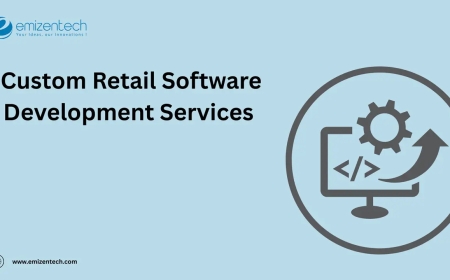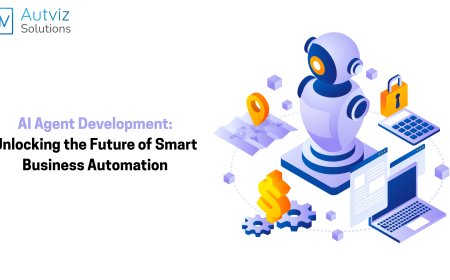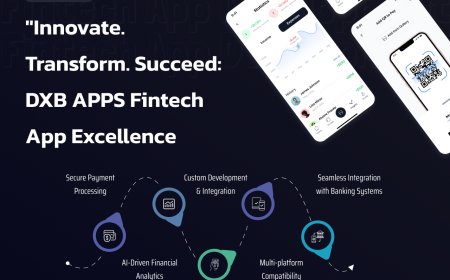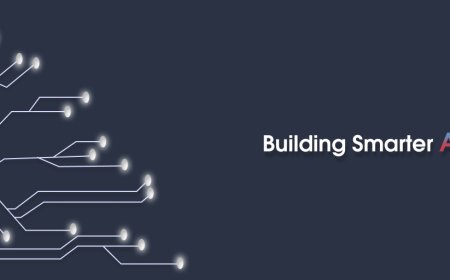Salesforce vs. HubSpot vs. Microsoft Dynamics: Which CRM Integration Works Best With Cisco CTI?
Discover the best CRM integration for Cisco CTI as we compare Salesforce, HubSpot, and Microsoft Dynamics. Make an informed choice for your business.

In today's fast-paced digital landscape, customer expectations have evolved. Businesses, especially enterprises, are no longer competing solely on products or pricing; they're also competing on customer experience. Thats where CRM platforms integrated with Cisco CTI (Computer Telephony Integration) and other cloud-based communication systems become essential.
If your business leverages Cisco Contact Center solutions, choosing the right CRM integration can drastically enhance your customer engagement, operational efficiency, and revenue growth. But when comparing Salesforce, HubSpot, and Microsoft Dynamics, which one delivers the best synergy with Cisco CTI?
Lets explore each CRMs strengths, integration capabilities, and how they align with modern contact center needs, especially those usingSalesforce AI Omnichannel chat and Amazon Connect Dynamic 365 Integration.
The Importance of CRM Integration with Cisco CTI
Before we dive into the comparison, lets understand why CRM and Cisco CTI integration matters.
Cisco CTI enables real-time communication between your telephony system and CRM. It streamlines call handling, provides screen pops with customer data, automates workflows, and enhances agent productivity. When paired with a robust CRM, CTI becomes a powerful tool for delivering contextual, seamless customer interactions.
Enterprises that integrate Cisco CTI with the right CRM platform enjoy:
-
Faster response times
-
Smarter routing
-
Personalized experiences
-
Improved customer satisfaction
-
Lower operational costs
Now lets break down the top three CRMs and see how they perform.
Salesforce: The Intelligent CRM with AI-Powered Omnichannel Support
Salesforce is often the first choice for large enterprises, and for good reason. Its packed with features and integrates well with Cisco CTI. With the rise ofSalesforce AI Omnichannel chat, businesses can now offer a 360-degree experience across voice, web chat, social media, and email.
Key Benefits of Salesforce + Cisco CTI:
-
AI-Powered Routing: Automatically route customers to the right agent using AI-driven analytics.
-
Real-Time Insights: Access customer information during live calls to offer tailored solutions.
-
Salesforce AI Omnichannel chat: Enable agents to handle voice, chat, and social media from a single pane of glass.
-
Automation: Automate call logging, case creation, and follow-up tasks using Salesforce Flow.
Salesforce's robust app ecosystem includes multiple CTI connectors designed specifically for Cisco platforms, including UCCE and UCCX. These connectors deliver click-to-dial, call notes, and activity logging directly within the Salesforce dashboard.
Use Case:
A financial services firm used Salesforce AI Omnichannel chat integrated with Cisco CTI to reduce call handling time by 25% and increase first-call resolution by 40%.
Best For: Enterprises that need deep customization, advanced automation, and AI-driven omnichannel support.
Microsoft Dynamics: The Enterprise-Ready Powerhouse
Microsoft Dynamics 365 is rapidly gaining traction as a CRM for large and mid-sized enterprises, especially those already invested in the Microsoft ecosystem. Its tight integration with Microsoft Teams, Azure, and Office 365 makes it an efficient choice for collaboration and productivity.
More importantly, Amazon Connect Dynamic 365 Integration is helping enterprises unlock new levels of customer engagement. This pairing allows for seamless communication management between cloud telephony systems like Amazon Connect and Microsoft Dynamics CRM.
Key Benefits of Microsoft Dynamics + Cisco CTI:
-
Unified Interface: Handle all communications from a single dashboard.
-
Power Platform Integration: Use Power Automate and Power BI to create custom workflows and dashboards.
-
Amazon Connect Dynamic 365 Integration: Deliver personalized customer service through cloud-native telephony.
-
Secure and Scalable: Enterprise-grade compliance and security features.
Microsoft Dynamics also offers connectors for Cisco Contact Centers, allowing full synchronization of call data, activity tracking, and customer records.
Use Case:
A healthcare provider implemented Amazon Connect Dynamic 365 Integration with Cisco CTI and reduced call abandonment rates by 35% while improving HIPAA compliance through better data management.
Best For: Enterprises that prioritize security, scalability, and Microsoft tool integration.
HubSpot: The User-Friendly CRM for Growing Teams
HubSpot is well-known for its intuitive interface and is favored by startups and growing mid-market companies. While it doesn't offer the same level of depth or enterprise-grade features as Salesforce or Dynamics, HubSpot still provides essential tools for marketing, sales, and customer support.
Its integration with Cisco CTI is more basic but functional, ideal for companies with simpler workflows or less need for custom development.
Key Benefits of HubSpot + Cisco CTI:
-
Ease of Use: Minimal training required; highly intuitive UI.
-
Inbound Focus: Strong marketing automation tools paired with call tracking.
-
Affordable: Lower cost of entry compared to Salesforce or Dynamics.
-
App Marketplace: Offers third-party integrations with Cisco CTI systems.
HubSpot also supports real-time call tracking and screen pops, helping teams quickly access customer information when answering calls.
Use Case:
A SaaS startup integrated HubSpot with Cisco CTI and saw a 50% increase in lead conversion by streamlining sales calls and follow-up processes.
Best For: Small to medium businesses looking for a cost-effective and easy-to-implement CRM solution.
Comparing Features at a Glance
| Feature | Salesforce | Microsoft Dynamics | HubSpot |
|---|---|---|---|
| AI Integration | ?? Salesforce AI Omnichannel chat | ?? Amazon Connect Dynamic 365 Integration | ? Limited |
| Cisco CTI Integration | ?? Native & 3rd-party connectors | ?? Strong with the Microsoft ecosystem | ?? Basic integration |
| Customization | ?? Extensive | ?? Moderate to Extensive | ? Limited |
| Ease of Use | ?? Steep learning curve | ?? Moderate | ?? User-friendly |
| Pricing | ? Higher-end | ? Enterprise-grade | ? Affordable |
Final Verdict: Which CRM Integration Works Best with Cisco CTI?
Each CRM brings something unique to the table. Your ideal choice depends on your business size, technical needs, and future growth plans.
-
Choose Salesforce if you're looking for advanced AI capabilities, deep customization, and robust omnichannel engagement. The Salesforce AI Omnichannel chat feature alone is worth the investment for enterprises seeking seamless cross-channel experiences.
-
Opt for Microsoft Dynamics if your company relies heavily on the Microsoft ecosystem and wants to leverage Amazon Connect, Dynamics 365 Integration. It's a secure and scalable choice for highly regulated industries.
-
Go with HubSpot if you're a growing business that needs a simple yet effective CRM solution with Cisco CTI compatibility.
Final Thoughts
As customer expectations rise, integrating your Cisco Contact Center with the right CRM becomes more than just a technical decision; its a strategic one. Whether you're powered by Salesforce AI Omnichannel chat or exploring Amazon Connect Dynamic 365 Integration, the synergy between CRM and CTI can transform how your business communicates, serves, and sells.
Still unsure which CRM fits your Cisco CTI setup best? Consult a CRM integration expert or contact a certified partner to evaluate your organizations needs and deploy the best-fit solution.
Let your CRM and communication systems work together, not apart.








































